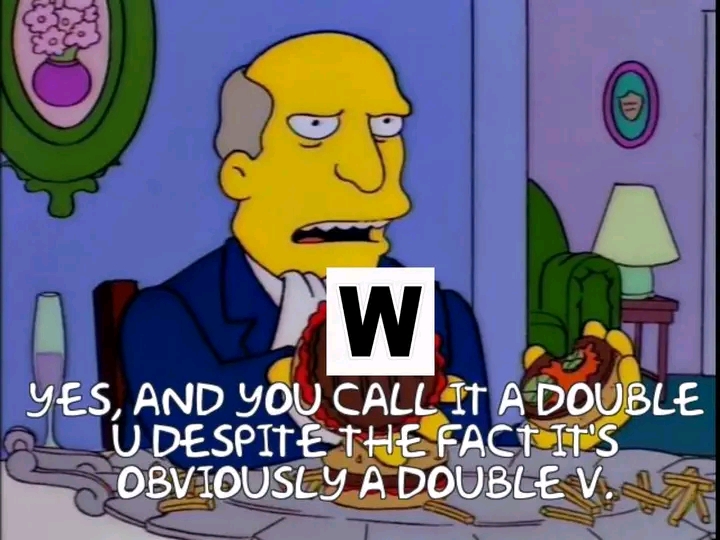It's because U and V used to be the same letter. Jan Misali made a great video about the history of W.
English usage and grammar
A community to discuss and ask questions about English usage and grammar.
If your post refers to a specific English variant, please indicate it within square brackets (for instance [Canadian]).
Online resources:
- Cambridge English Dictionary
- Merriam-Webster Dictionary and Thesaurus
- Gilman's Webster's Dictionary of English Usage. This is a great and witty reference about usage, its history, and its controveries
Sibling communities:
Rules of conduct:
The usual ones on Lemmy and Mastodon.. In short: be kind or at least respectful, no offensive language, no harassment, no spam.
(Icon: entry "English" in the Oxford English Dictionary, 1933. Banner: page from Chaucer's "The Wife of Bath's Tale".)
It is called double V in French
And Spanish
And croatian
Probably all romance languages
Also in most Germanic languages.
But not the Germanic language we all speak.
Not that particular Germanic language no. But in most others.
W looks like uu in certain handwriting styles (like mine lol)
Try writing a U in stone, makes more sense to have it shaped like a V
Best answer 🤣
